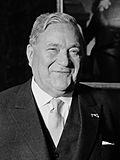
The Bundestag is the German federal parliament. It is the only federal representative body that is directly elected by the German people, comparable to the House of Commons of the United Kingdom. The Bundestag was established by Title III of the Basic Law for the Federal Republic of Germany in 1949 as one of the legislative bodies of Germany and thus it is the historical successor to the earlier Reichstag.
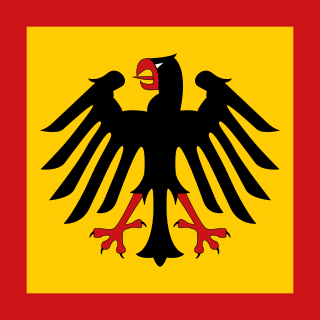
The president of Germany, officially titled the Federal President of the Federal Republic of Germany, is the head of state of Germany.

Each of the 50 U.S. states, the District of Columbia, and territories of the United States holds either primary elections or caucuses to help nominate individual candidates for president of the United States. This process is designed to choose the candidates that will represent their political parties in the general election.
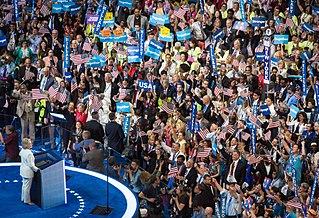
The Democratic National Convention (DNC) is a series of presidential nominating conventions held every four years since 1832 by the United States Democratic Party. They have been administered by the Democratic National Committee since the 1852 national convention. The primary goal of the Democratic National Convention is to officially nominate a candidate for president and vice president, adopt a comprehensive party platform, and unify the party. Pledged delegates from all fifty U.S. states, the District of Columbia, and the American territories, and superdelegates which are unpledged delegates representing the Democratic establishment, attend the convention and cast their votes to choose the party's presidential candidate. Like the Republican National Convention, the Democratic National Convention marks the formal end of the primary election period and the start of the general election season. Since the 1980s, national conventions have become mostly inaugural events for the winning candidate, since winners are announced long before the convention. In 2020, both major parties, and many minor parties, replaced their usual in-person conventions with virtual programs due to the COVID-19 pandemic.
In American politics, a superdelegate is a delegate to a presidential nominating convention who is seated automatically.
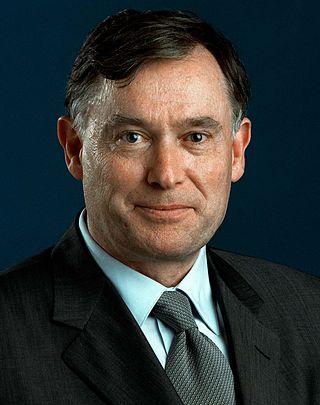
An indirect presidential election was held in Germany on 23 May 2004.
An indirect election or hierarchical voting, is an election in which voters do not choose directly among candidates or parties for an office, but elect people who in turn choose candidates or parties. It is one of the oldest forms of elections and is used by many countries for heads of state, cabinets, heads of government, and/or upper houses. It is also used for some supranational legislatures.
The Federal Convention, also known as the Federal Assembly, is, together with the Joint Committee, one of two non-standing constitutional bodies in the federal institutional system of the Federal Republic of Germany. It is convened solely for the purpose of electing the President of Germany, either every five years or within 30 days of the premature termination of a presidential term. The Federal Convention consists of all members of the German federal parliament (Bundestag) and the same number of delegates from the 16 federated states. Those delegates are elected by the state parliaments for this purpose only.
The Utah Democratic Party is the affiliate of the Democratic Party in the U.S. state of Utah. Its platform focuses on economic security, equal opportunity, the common good, and American leadership. The party also describes itself as a big tent party.
CDU/CSU, unofficially the Union parties or the Union, is a centre-right Christian democratic political alliance of two political parties in Germany: the Christian Democratic Union of Germany (CDU) and the Christian Social Union in Bavaria (CSU).

The election of the president and the vice president of the United States is an indirect election in which citizens of the United States who are registered to vote in one of the fifty U.S. states or in Washington, D.C., cast ballots not directly for those offices, but instead for members of the Electoral College. These electors then cast direct votes, known as electoral votes, for president, and for vice president. The candidate who receives an absolute majority of electoral votes is then elected to that office. If no candidate receives an absolute majority of the votes for president, the House of Representatives elects the president; likewise if no one receives an absolute majority of the votes for vice president, then the Senate elects the vice president.

An indirect presidential election saw the former Social democrat minister-president of North Rhine-Westphalia defeat Christian democrat Dagmar Schipanski and the nonpartisan academic Uta Ranke-Heinemann, who had been endorsed by the Party of Democratic Socialism.

An indirect presidential election was held in Germany on 23 May 1994. Incumbent president Richard von Weizsäcker was term-limited and could therefore not stand for reelection. Roman Herzog, candidate for the Christian Democratic Union, was elected in three rounds of voting.

An indirect presidential election was held in West Germany on 23 May 1984. Though not term limited, incumbent Karl Carstens elected not to seek a second term. His Christian Democratic Union instead nominated Richard von Weizsäcker, the governing mayor of West Berlin. The Greens, who were represented at the Federal Convention for the first time, nominated author Luise Rinser. The SPD and FDP elected not to nominate candidates. Weizsäcker won the election with 80% of the vote on the first ballot.

An indirect presidential election was held in West Germany on 23 May 1979. Deeming his reelection to be unlikely, incumbent Walter Scheel elected not to seek a second term. The two candidates to replace him were the president of the Bundestag, Karl Carstens, nominated by the Christian Democratic Union, and Carstens' immediate predecessor, Annemarie Renger, nominated by the Social Democratic Party. Carstens won the election on the first ballot.

An indirect presidential election was held in West Germany on 23 May 1974. Though not term limited, incumbent Gustav Heinemann chose not to seek a second term. The government parties nominated Vice-Chancellor Walter Scheel; the Christian Democratic Union nominated Richard von Weizsäcker. Scheel won the election by 32 votes on the first ballot. He served as president until 1979. Weizsäcker would later serve as president from 1984 to 1994.

An indirect presidential election was held in West Germany on 5 March 1969. The incumbent president, Heinrich Lübke, had served two terms and was therefore ineligible for a third. The Christian Democratic Union nominated defense minister Gerhard Schröder. Schröder was a controversial choice, even within his own party, since he had been a member of the NSDAP and the SA under Hitler. Other potential candidates included Helmut Kohl and Richard von Weizsäcker, relatively unknown names at the time, who would go on to serve as chancellor and president, respectively. Justice Minister Gustav Heinemann was nominated by the Social Democratic Party and supported by the opposition Free Democratic Party. With neither candidate able to win an absolute majority, Heinemann won the election on the third ballot by only 6 votes.
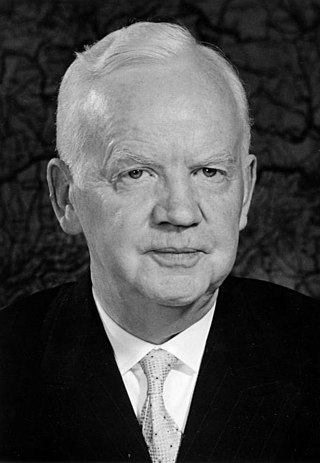
An indirect presidential election was held in West Germany on 1 July 1964. President Heinrich Lübke was renominated by the Christian Democratic Union. The Free Democratic Party nominated justice minister Ewald Bucher. The Social Democratic Party was divided. The official party line was that they supported President Lübke's re-election. Some have speculated this was a first move towards the grand-coalition that brought Kurt Kiesinger to power two years later. However, the high number of abstentions seems to indicate that not all members of the SPD caucus agreed with this move, as does the fact that Ewald Bucher received at least 19 votes from outside his own party.
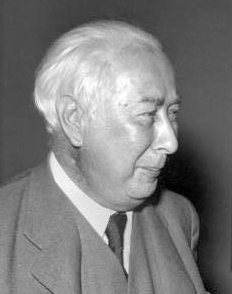
An indirect presidential election was held in West Germany on 17 July 1954. The government parties and the opposition SPD renominated incumbent Theodor Heuss. Against his wishes, the Communist Party of Germany nominated Alfred Weber. Heuss was reelected on the first ballot with about 85% of the vote.

An indirect presidential election was held on 12 February 2017 to elect the 12th President of Germany. Incumbent President Joachim Gauck announced on 6 June 2016 that he would not stand for re-election, citing his advancing age.

